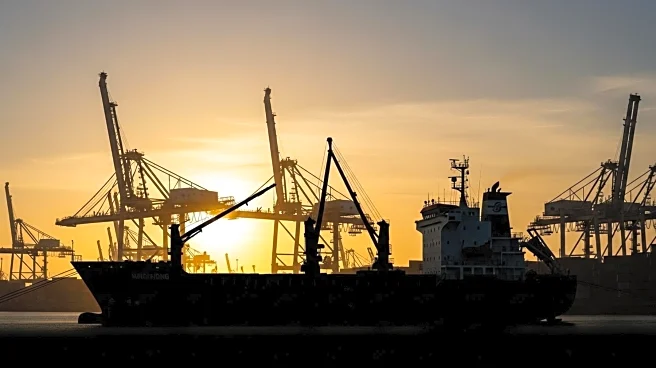What's Happening?
Terminal operators at Huangdao Port in Shandong province, China, are set to implement measures banning shadow fleet vessels and restricting visits by older tankers. This decision follows the U.S. designation of a nearby port as receiving Iranian oil under sanctions. The new rules, effective November 1, target vessels using fake IMO numbers and those over 31 years old, aiming to address environmental concerns and rising sanctions pressure. The port is a major entry point for Iranian oil, and the measures reflect China's stance on Western sanctions.
Why It's Important?
The ban on shadow fleet vessels at Huangdao Port highlights the ongoing geopolitical tensions surrounding oil trade and sanctions. As a significant entry point for Iranian oil, the port's decision could impact global oil markets and trade dynamics. The measures may also influence China's relations with Western countries, particularly the U.S., as they navigate the complexities of international sanctions and environmental regulations.
What's Next?
The implementation of these measures may lead to changes in oil trade routes and strategies for companies involved in transporting sanctioned oil. Stakeholders, including oil traders and shipping companies, will need to adapt to the new regulations, potentially seeking alternative routes or compliance strategies. The situation may also prompt diplomatic discussions between China and Western countries regarding sanctions and trade policies.
Beyond the Headlines
The focus on environmental concerns in the port's decision underscores the growing importance of sustainability in global trade practices. It reflects a broader trend towards stricter regulations and accountability in the shipping industry, which could drive innovation in vessel design and operations to meet environmental standards.









